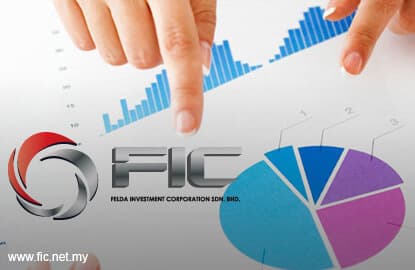
FELDA Investment Corp Sdn Bhd (FIC), a subsidiary of the Federal Land Development Authority (FELDA), is understood to be finalising the mode of its acquisition of a stake in PT Eagle High Plantations Tbk. This could mean that the deal is close to being concluded, sources familiar with the matter tell The Edge.
It is understood that FIC is once again looking to buy a direct stake in Eagle High after ditching another proposal to take up convertible bonds to be issued by Eagle High.
“The plan to buy convertible bonds was basically for FIC’s protection. It could have converted the bonds into shares if the price of Eagle High had gone up, and if it didn’t, FIC could have just held the bonds and got back the principal with whatever coupon when it matured,” the source explains.
It is also understood that FIC is still looking at a “decent discount” of about 30% on the initially mooted price when talks commenced last year.
In mid-June last year, publicly traded Felda Global Ventures Holdings Bhd (FGV), a 20% unit of FELDA, announced plans to purchase a 30% interest in Eagle High for US$632 million cash and a further 7% via the issue of 95 million new FGV shares worth US$48 million, which gave the deal a total valuation of US$680 million or RM2.89 billion then.
A 30% discount on the initial price would put the selling price of the 37% stake at US$476 million or RM1.96 billion.
Last Thursday, Eagle High closed at IDR198 a share, giving the company a market capitalisation of US$481.65 million. Thus, 37% of this would be worth US$178.21 million or RM735.87 million. This means a 30% discount would still entail a steep premium being forked out on the market value of the stake.
The low trading price of Eagle High was what prompted FIC to consider subscribing for debt paper as opposed to a direct stake. However, some quarters questioned why FIC was adamant about buying into Eagle High and, worse still, fund the company via the acquisition of debt paper.
There could also have been problems with ratings if Eagle High had issued debt paper, considering that it was in the red in the last four financial quarters, and suffered a net loss of US$13.43 million on revenue of US$199.90 million in its financial year ended Dec 31, 2015.
Bloomberg data reveals that as at Dec 31, 2015, Eagle High had cash and near-cash items amounting to US$90.3 million as well as long and short-term debt of US$452.7 million and US$199.3 million respectively. Based on its shareholders’ funds of US$480.1 million as at end-2015, the company had a high gearing of 1.17 times.
Eagle High is 65.5%-controlled by the Rajawali group, the vehicle of well-connected Indonesian businessman Tan Sri Peter Sondakh.
In its financial year ended Dec 31, 2015, FIC suffered a net loss of RM35.7 million on revenue of RM206.85 million. It had non-current assets of RM3.48 billion, current assets of RM942.28 million, short-term borrowings of RM2.16 billion and long-term debt commitments of RM1.62 billion.
Eagle High buy linked to CPOPC?
Indonesia’s third largest plantation company, Eagle High is reported to own 419,006ha of plantations, of which 147,000ha are planted, have an average tree profile of less than seven years.
Some say FIC’s insistence on buying Eagle High stems from plans involving the Council of Palm Oil Producer Countries (CPOPC).
Certain quarters say FIC and the Malaysian government plan to use Eagle High as a vehicle to push through plans for the development of CPOPC.
In August, CPOPC appointed Benny Wachjudi as its first executive director and he, in turn, signed a host country agreement between CPOPC and the Indonesian government, paving the way for the CPOPC secretariat to become operational.
In a nutshell, CPOPC will operate like a cartel, much like the Organization of the Petroleum Exporting Countries, and will control the production of CPO, thus driving up prices.
CPOPC also hopes to assert control over is sues such as the sustainability of CPO, taking over from other bodies such as the Roundtable on Sustainable Palm Oil (RSPO), which is Europe-based and seen as overwhelmingly favouring the buyers of the commodity.
But whether there is political will to push through CPOPC remains to be seen as there is a lot of competition between Malaysia and Indonesia.
There is also the common complaint by local CPO producers that the differential export tax rates on the commodity between the two producers has led to Indonesian producers gaining market share.
Some opine that CPOPC may have been rushed through during the Asean summit in November last year and that more thought should have been put into it before it was set up.
Both Indonesia and Malaysia — the largest and second largest producers of CPO — signed the Charter of the Establishment of CPOPC on the sidelines of the 27th Asean summit in Indonesia. Each contributed an initial sum of US$5 million (RM20.67 million) for the operations of CPOPC but the council has yet to meaningfully take off.
Save by subscribing to us for your print and/or digital copy.
P/S: The Edge is also available on Apple's AppStore and Androids' Google Play.